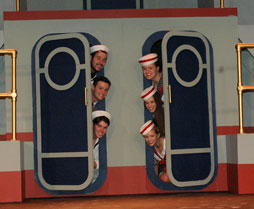By Mark Bauer/reporter
Some of the biggest challenges in relationships stem from the fact that most people enter a relationship in order to profit from it, a SE counselor told students last week.
Michael Eason exhorted students to take a look at their own personal relationships and to be honest with themselves in an attempt to identify any unhealthy characteristics.
To gain a better understanding of who they are, Eason said the students should gather an outline of their family origin.
“ Much of who you are today is attributed to your family of origin,” he said.
For example, Eason said that if children have a father who is absent throughout their childhood, when they begin to date, they seek out and are attracted to other individuals with similar personality traits as the absent father. This unfinished business from the family of origin manifests itself through dating. They have to prove they are capable of keeping someone else in their lives, something they feel they were incapable of doing with their absent father.
“ You are quickly becoming what you are going to be,” he said. “If you have unresolved issues from your family of origin, you will have problems in your current or future relationships.”
Another problem often found in relationships is issues of codependency. In a symbiotic relationship, an individual cannot exist wholly without the other person because, Eason said, that is unhealthy.
If individuals look for completion in the form of a relationship, they are headed for trouble, Eason said. In order to maintain a healthy relationship, both parties involved must have high self-esteem.
“ It is my belief that everyone will benefit from counseling,” he said, “regardless of whether or not they are in a relationship.”
When Eason asked the audience what they look for in an intimate relationship, he gathered several responses. Students said they wanted space, stability, assurance of fidelity and treatment as an equal.
Basically, Eason said, people do not need to look much further for relationship advice than what children are told while growing up.
“ Be courteous, be considerate—golden rule, treat the other as you would like to be treated,” he said.
Offering the students some action points, Eason said they should ask themselves who the most important person in their life is and what messages they are hearing from that person.
“ Are those messages affirmative or negative?” he asked.
Eason also suggested partners should agree on guidelines.
“ When rules and boundaries are set in a relationship, it evokes security,” he said.
Out of that security, Eason said, come trust and stability—key attributes of a healthy relationship.


























